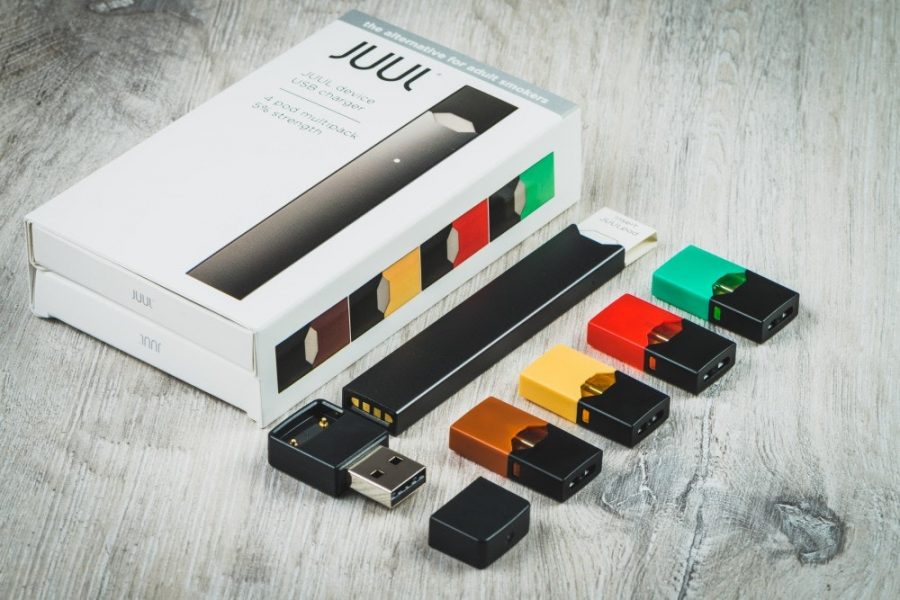Juul Takes Steps to Stop Teen Usage
January 8, 2019
The Juul e-cigarette has become ubiquitous across the nation – and a generous amount of its popularity lends itself to the plethora of teenagers who use Juuls without being aware of the dangers each flash drive-shaped vaping apparatus can lead to. Fortunately, the Juul company has become aware of this hazardous phenomenon and is taking action in stores and on social media to curb its growth.
One of the greatest selling points for Juuls, in the eyes of both teenagers and adults alike, is the plethora of flavors the e-cigarettes are available in – from creme brulee to cool cucumber. As of November 11, Juul has begun to pull all its popular e-cigarette flavors, except for tobacco and menthol, from store shelves. This change will hopefully not attract as many underaged consumers.
Kevin Burns, chief executive of Juul Labs, has stated that the “intent [of the company] was never to have youth use Juul.” However, the marketing tactics used by Juul seem to have implied otherwise. Juul has used social media – specifically websites popular among teenagers like Twitter, Snapchat, Facebook and Instagram – to showcase advertisements which show attractive, young models making smoking a Juul look glamorous.
In addition, visitors to the Juul website see a window that informs them that Juuls are intended for “adult smokers who want to switch from combustible cigarettes”, and that you must be at least 21 years old to purchase Juuls from the official site. Two buttons grace the page, one that says “I am 21+ and agree to be verified” and one that says “I am not 21+”. If a teenager goes to the Juul website and clicks the latter button, they will be redirected to the Smokefree Teen website, set up to teach teen smokers how to quit and educate teens who do not smoke on all the risks of smoking.
Juuls are a strange case where many teenagers, even those who are aware of the dangers of conventional cigarettes, seem to be oblivious to how much of a health hazard they are. Juuls, prior to their ban on being sold in stores, were often advertised with warnings that they contain the highly addictive nicotine in the form of stickers on their packages or the shelves where they were sold on. A study by Tobacco Control found that “sixty-three percent of Juul users did not know that this product always contains nicotine”, and twenty-five percent of Juul users believe that since the concept of smoking a Juul is referred to as “Juuling” as opposed to “smoking”, or “vaping”, they treat it as something completely different and not as “dangerous” as the latter terms. According to Kaiser Health News, the scent of a Juul is akin to a “lotion or body spray”, and a good amount of teenagers believe Juuls are harmless simply because they come in candy-like flavors. An “annual national survey of more than 40,000 students from the University of Michigan 2016 Monitoring the Future study” found that a large percentage of college students who smoke flavored e-cigarettes, including Juuls, believed they were only consuming nothing more than flavoring when they smoke one.
Hopefully the steps Juul is taking to increase awareness of the fact that their product is harmful to teenagers, and to not attract as many teenagers to their product, will cause the positive effects such steps anticipate causing.















